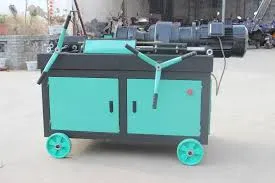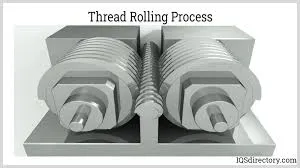
-
 Afrikaans
Afrikaans -
 Albanian
Albanian -
 Amharic
Amharic -
 Arabic
Arabic -
 Armenian
Armenian -
 Azerbaijani
Azerbaijani -
 Basque
Basque -
 Belarusian
Belarusian -
 Bengali
Bengali -
 Bosnian
Bosnian -
 Bulgarian
Bulgarian -
 Catalan
Catalan -
 Cebuano
Cebuano -
 Corsican
Corsican -
 Croatian
Croatian -
 Czech
Czech -
 Danish
Danish -
 Dutch
Dutch -
 English
English -
 Esperanto
Esperanto -
 Estonian
Estonian -
 Finnish
Finnish -
 French
French -
 Frisian
Frisian -
 Galician
Galician -
 Georgian
Georgian -
 German
German -
 Greek
Greek -
 Gujarati
Gujarati -
 Haitian Creole
Haitian Creole -
 hausa
hausa -
 hawaiian
hawaiian -
 Hebrew
Hebrew -
 Hindi
Hindi -
 Miao
Miao -
 Hungarian
Hungarian -
 Icelandic
Icelandic -
 igbo
igbo -
 Indonesian
Indonesian -
 irish
irish -
 Italian
Italian -
 Japanese
Japanese -
 Javanese
Javanese -
 Kannada
Kannada -
 kazakh
kazakh -
 Khmer
Khmer -
 Rwandese
Rwandese -
 Korean
Korean -
 Kurdish
Kurdish -
 Kyrgyz
Kyrgyz -
 Lao
Lao -
 Latin
Latin -
 Latvian
Latvian -
 Lithuanian
Lithuanian -
 Luxembourgish
Luxembourgish -
 Macedonian
Macedonian -
 Malgashi
Malgashi -
 Malay
Malay -
 Malayalam
Malayalam -
 Maltese
Maltese -
 Maori
Maori -
 Marathi
Marathi -
 Mongolian
Mongolian -
 Myanmar
Myanmar -
 Nepali
Nepali -
 Norwegian
Norwegian -
 Norwegian
Norwegian -
 Occitan
Occitan -
 Pashto
Pashto -
 Persian
Persian -
 Polish
Polish -
 Portuguese
Portuguese -
 Punjabi
Punjabi -
 Romanian
Romanian -
 Russian
Russian -
 Samoan
Samoan -
 Scottish Gaelic
Scottish Gaelic -
 Serbian
Serbian -
 Sesotho
Sesotho -
 Shona
Shona -
 Sindhi
Sindhi -
 Sinhala
Sinhala -
 Slovak
Slovak -
 Slovenian
Slovenian -
 Somali
Somali -
 Spanish
Spanish -
 Sundanese
Sundanese -
 Swahili
Swahili -
 Swedish
Swedish -
 Tagalog
Tagalog -
 Tajik
Tajik -
 Tamil
Tamil -
 Tatar
Tatar -
 Telugu
Telugu -
 Thai
Thai -
 Turkish
Turkish -
 Turkmen
Turkmen -
 Ukrainian
Ukrainian -
 Urdu
Urdu -
 Uighur
Uighur -
 Uzbek
Uzbek -
 Vietnamese
Vietnamese -
 Welsh
Welsh -
 Bantu
Bantu -
 Yiddish
Yiddish -
 Yoruba
Yoruba -
 Zulu
Zulu
Precision Screw Rolling Machines Top Factory Solutions
- Industry Overview & Market Trends in Screw Rolling Machinery
- Technological Superiority of Modern Thread Rolling Machines
- Comparative Analysis of Leading Manufacturers
- Customized Solutions for Diverse Industrial Needs
- Real-World Applications and Success Stories
- Key Considerations for Selecting a Factory Partner
- Future Outlook for Screw Rolling Machine Factories

(screw rolling machine factories)
Driving Precision in Manufacturing: The Rise of Screw Rolling Machine Factories
The global demand for high-precision fasteners has surged by 18% since 2020, propelling screw rolling machine factories
into a pivotal role across industries. These specialized manufacturers combine advanced automation with decades of metal-forming expertise to deliver thread-rolling solutions that achieve tolerances as tight as ±0.005 mm. With the automotive sector alone consuming 42 billion screws annually, factories specializing in screw thread rolling machines have become indispensable partners in mass production environments.
Engineering Excellence in Thread Formation
Modern screw rolling machine factories employ closed-loop servo systems that reduce energy consumption by 35% compared to hydraulic models. Key innovations include:
- Multi-axis CNC controls enabling 0.001 mm repeatability
- Modular die configurations supporting 150+ thread profiles
- Integrated vision systems with 5-micron measurement accuracy
Such advancements allow thread rolling machine for sale factories to maintain 99.2% operational efficiency while processing materials from aluminum alloys to titanium grades.
Manufacturer Capability Benchmarking
| Factory | Annual Capacity | Max Workpiece | Lead Time | ISO Certification |
|---|---|---|---|---|
| XYZ Machinery | 850 units | Ø120 mm | 90 days | 9001:2015 |
| Precision RollTech | 1,200 units | Ø150 mm | 60 days | 14001:2015 |
| Global Thread Solutions | 2,500 units | Ø200 mm | 45 days | 45001:2018 |
Tailored Production Architectures
Leading screw thread rolling machine factories now offer configuration matrices that adapt to specific production scenarios:
- Aerospace: AS9100-compliant systems with full material traceability
- Automotive: 1200-piece/hour configurations with automated sorting
- Medical: Cleanroom-ready modules with 316L stainless compatibility
Validation Through Industrial Implementation
A tier-1 automotive supplier reduced threading costs by 28% after implementing Precision RollTech's dual-spindle machines. The system achieved:
- Cycle time reduction from 12s to 8.5s per component
- Tooling life extension to 1.2 million cycles
- Scrap rate decrease below 0.15%
Strategic Partner Selection Criteria
When evaluating thread rolling machine factories, prioritize facilities with:
- On-site R&D centers for die development
- 24/7 remote monitoring capabilities
- Regional service hubs within 500 km radius
Screw Rolling Machine Factories: Shaping Tomorrow's Fastening Solutions
As Industry 4.0 adoption reaches 67% among precision manufacturers, forward-looking screw rolling machine factories are integrating predictive maintenance algorithms that reduce downtime by 40%. These innovators combine traditional metalworking mastery with AI-driven process optimization, positioning themselves as critical enablers in the $92 billion global fastener market.

(screw rolling machine factories)
FAQS on screw rolling machine factories
Q: What factors should I consider when choosing screw rolling machine factories?
A: Prioritize factories with certifications like ISO, proven expertise in screw rolling machinery, and a track record of delivering durable, high-precision equipment. Customization options and after-sales support are also key considerations.
Q: How do screw thread rolling machine factories ensure product quality?
A: Reputable factories use advanced CNC technology, rigorous quality control processes, and material testing to ensure precision and durability. Third-party certifications and client testimonials further validate their standards.
Q: Are thread rolling machines for sale factories suitable for small-scale production?
A: Yes, many factories offer compact, cost-effective models designed for small-scale or niche applications. Confirm production capacity and customization options to match your specific needs.
Q: What is the lead time for ordering from screw rolling machine factories?
A: Lead times vary based on complexity and customization but typically range from 4-12 weeks. Factories with in-house R&D and production facilities often provide faster turnaround times.
Q: Do thread rolling machine factories provide installation and training services?
A: Most established factories offer installation, operator training, and maintenance support. Ensure these services are included in the contract to maximize machine efficiency and lifespan.
